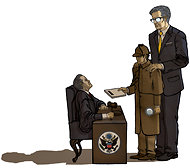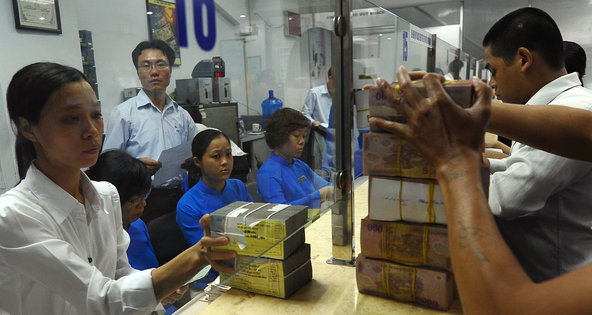Brazil’s economy, driven by a worldwide commodity boom, grew a blistering 7.5 percent that year. And Mr. Batista’s prodigious holdings — spanning oil, mining, shipping and real estate — were soaring in value. In the interview, Mr. Batista was asked how rich he would become over the next decade.
“A hundred billion dollars,” he said, an amount that would most likely have made him the wealthiest person in the world.
Today, with the Brazilian stock market and the value of its currency falling as mass demonstrations hobble the country, Mr. Batista’s billions are evaporating. From a peak of $34.5 billion in March 2012, his wealth has dropped to an estimated $4.8 billion, according to the Bloomberg Billionaires Index. His lenders are growing anxious, and there are concerns that he might have to reorganize — and possibly lose control of — his dwindling empire.
The rise and fall of the charismatic industrialist mirrors Brazil’s sudden reversal of fortune. After years of economic expansion, the South American nation has begun to sputter. Inflation has become a major concern. Brazil’s stock market index has declined about 23 percent this year, the most of any large country. This month, Standard Poor’s cut its outlook on Brazil’s credit rating to negative, citing slowing growth and weakening finances.
And then there are the street protests spreading across Brazil, stunning the country’s political and business establishment. With outbursts of violence, the protests, initially caused by an increase in bus fares, have grown into a broad questioning of the government’s priorities. The protests shook an array of cities over the weekend, with somewhat less intensity than in previous days, and organizers promised a new round of demonstrations in the days ahead.
Mr. Batista’s conglomerate, as an emblem of the nation’s industrial mettle, ranked among the government priorities now being questioned, receiving more than $4 billion in loans and investments from the national development bank. While protesters have not focused much ire on Brazil’s economic elite, there has been a building resentment toward the fact that governing structures subject to corruption in Brazil remained largely the same throughout the long economic boom, as authorities channeled huge resources of the state to projects controlled by tycoons.
The protesters have directed much of their anger toward political leaders, some of whom are close to Mr. Batista, like the governor of Rio de Janeiro, Sérgio Cabral, to whom Mr. Batista occasionally lent his private jet and who found demonstrators camped in front his home.
“Eike Batista assembled an empire thanks to colossal financing from the Brazilian government,” said Carlos Lessa, an economist and former president of Brazil’s national development bank. “But his explosion of wealth and prominence on the global stage came with risks, as the government itself and investors are discovering now.”
Mr. Batista built his fortune by selling investors on the potential of Brazil, forming companies that would benefit from the country’s rich oil fields, vast mining resources and fast-growing middle class.
But over the last year, investors in Mr. Batista’s six publicly traded businesses — none of which are profitable — have unloaded their shares amid disappointing projections, missed deadlines and a heavy debt load.
“He bundled wind and sold it,” said Miriam Leitão, an economic historian and columnist for O Globo, a leading Brazilian newspaper. “The euphoria fooled a lot of people.”
Now Mr. Batista is shedding assets and raising cash. In April, he dumped a large stake in his electric power company. He has put a private jet, a $26 million Embraer Legacy 600, up for sale. He is seeking a partner for Rio de Janeiro’s landmark Hotel Glória that he bought in 2008, a project that was supposed to be ready for the 2014 soccer World Cup but is mired in delays.

Article source: http://www.nytimes.com/2013/06/24/business/global/brazil-fortune-and-fate-turn-on-billionaire.html?partner=rss&emc=rss




